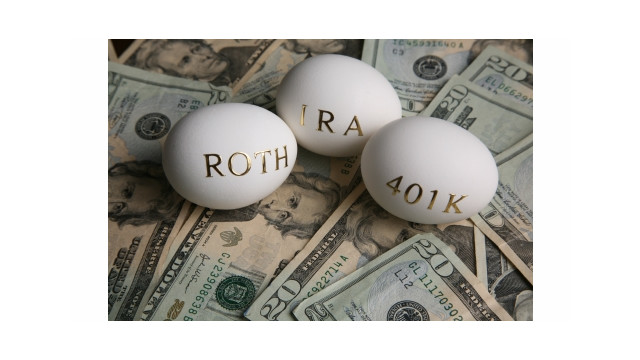Anxiety about long-term retirement savings is up according to a new survey from Schwab Retirement Plan Services, and so is participant engagement. The nationwide survey of 1,000 currently employed 401(k) plan participants finds that saving enough for a comfortable retirement continues to be their leading source of significant financial stress. On average, these 401(k) participants believe they need to save $1.9 million for retirement, an increase of 12% from the $1.7 million reported in last year’s survey. Two in five participants also say they made a change to their 401(k) account due to COVID-19, citing rebalancing and increasing contribution rates as the most common changes.
“Saving for retirement has been a top financial stressor for people even when the markets were setting records and we were living through the longest bull market in history,” said Catherine Golladay, executive vice president and head of Workplace Financial Services at Charles Schwab & Co., Inc. “Now we are in a new reality where people are trying to navigate the health and financial challenges right in front of them, while also worrying about their long-term goals. It is a lot, and we know workers can benefit if they talk to a financial professional to help them work out the right steps for their situation.”
Professional financial help: Catalyst for increased participant action
Forty-one percent of those responding to the survey have made changes to their 401(k) as a direct result of COVID-19 and its economic impact. The top action steps taken by these individuals were a combination of defensive and potentially opportunistic moves. Of the 41% who acted, 14% rebalanced their portfolio and 12% increased their contribution rate. These individuals also indicated that they either increased (8%) or decreased (7%) their exposure to stock funds/equity.
Notably, there was a higher rate of action among the one in four (25%) of survey respondents who consulted a financial professional. Of those who sought guidance, 67% made changes in their 401(k). The top three actions steps were the same as the broader group but at a higher rate: rebalancing (26%), increasing the contribution rate (22%) and increasing exposure to stock funds/equity (17%).
“We are very encouraged to see so many 401(k) participants actively engaging with their retirement accounts during this uncertain time,” said Golladay. “Getting help and leveraging the financial planning tools and resources your company makes available can help you understand whether you are on track, or need to make adjustments to meet your long-term retirement goals, despite the challenges of the current environment.”
Survey respondents anticipate COVID-19 will have an impact on their retirement savings. Thirty-seven percent feel they are ‘very likely’ to achieve their retirement savings goals, nearly half (49%) report they are ‘somewhat likely’ to achieve their retirement savings goals and 14% say it is ‘not likely’ that they will achieve their goals. One in five (21%) expects to retire later than originally planned because of the current situation.
Other survey findings
- More than three quarters (77%) of survey respondents are also offered Health Savings Accounts by their employer. Almost half (45%) of participants use an HSA, and, of those, 13% have used it to cover COVID-19-related expenses this year.
- The average amount survey participants believe they need to save for a comfortable retirement is $1.9 million. The average differs slightly by generation. Millennials and Gen X believe they will need $2 million and Boomers say they will need $1.6 million.
- Across the generations, Gen X has the lowest confidence about reaching their retirement goals. Only one in three (32%) of Gen X survey participants feel it is ‘very likely’ they will reach their goals versus 42% of Millennials and 39% of Boomers.
- Millennials in the study were the most likely to increase their 401(k) contribution rate and their exposure to equities in the current environment, followed by Gen X and then Boomers.
“Participants across all age groups expect their 401(k) savings to be the leading source of their retirement income, and overall concerns about saving enough and job security are significantly higher this year than we have seen in previous years,” said Golladay. “As the country works to emerge from the COVID-19 crisis, we can expect that the mindset and confidence levels of 401(k) savers will fluctuate. Professional financial guidance will continue to play an important role in helping steady their course ahead.”
Thanks for reading CPA Practice Advisor!
Subscribe Already registered? Log In
Need more information? Read the FAQs




